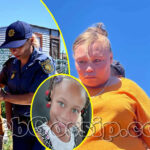Johannesburg – The South African National Defence Force (SANDF) has confirmed that the remains of the 14 soldiers killed in the Democratic Republic of the Congo (DRC) last month will be repatriated on Thursday, February 13, following delays that have left grieving families in limbo. The troops were killed in Goma during clashes with the M23 rebel group.
The SANDF said the soldiers' bodies were taken from DRC to the United Nations Logistics Base in Entebbe, Uganda, before being transported to South Africa.
SANDF spokesperson Siphiwe Dlamini confirmed that the handing over ceremony and memorial service for the soldiers will take place on Thursday at the Air Force Base Swartkop. The exact time for both events will be announced later.
The names of the fallen soldiers are: Staff Sergeant Shwahlane Theophilus Seepe, Corporal Rinae Nemavhulani, Rifleman Mokete Joseph Mobe, Rifleman Derrick Maluleke, Rifleman Sebatane Richard Chokoe, Corporal Matome Justice Malesa, Lance Bombardier Itumeleng Macdonald Moreo, Lance Corporal Tseke Moffat Molapo, Lance Corporal Metse Stansly Raswiswi, Private Peter Jacobus Strydom, Staff Sergeant Molahlehi Ishmael Molahlehi, Staff Sergeant William Eddie Cola, Rifleman Tshidiso Andries Mabele, and Rifleman Calvin Louis Moagi.
“It’s crucial to bring their spirits back to their homeland, because if not, when their bodies are repatriated, only their physical remains will return, while their spirits will remain in the DRC,” said Mkhulu Mahlasela. He explained that the ritual of “Go lata moya” (Sepedi) or “Ukulanda umoya (Zulu),” is important for those who die violently. If not retrieved, the spirit may cause disruption to the family, potentially leading to similar violent deaths, he said.
The repatriation of the fallen soldiers comes amidst growing criticism of Defence Minister Angie Motshekga and calls for her resignation. Opposition parties have accused her of not being truthful about the dire situation facing South African soldiers in the DRC and have demanded the withdrawal of SANDF troops from the conflict zone.
The Democratic Alliance wants Motshekga to resign and members of the South Africa National Defence Force (SANDF) withdrawn from DRC. “The time for excuses is over,” said DA lawmaker Chris Hattingh during a special parliamentary debate on 10 February.
ActionSA’s parliamentary leader Athol Trollip reiterated that Motshekga should resign or be fired with immediate effect. “Our ill-equipped, under-resourced, demoralised and outgunned soldiers were sent to fight in a war in which we have no ‘apparent’ demonstrable interest, and they were set up to fail and die,” Trollip said.
The Sunday newspaper Rapport reported that the fate of the South African soldiers held in captivity is yet to be decided.
The troops had been posted in December 2023 for a peace mission with the United Nations’ MONUSCO and the South African Development Community Mission in DRC (SAMIDRC).
A joint summit by the Southern African Development Community (SADC) and East African Community leaders over the weekend failed to take any resolution on withdrawal of troops. Rwanda’s President Paul Kagame attended the meeting in person while DRC President Félix Tshisekedi took part via video link.
The summit did not apportion any blame for the attacks, but called on the parties to recommit to the Luanda/Nairobi peace processes already in place. It also called on the chiefs of defence of the two regional bodies to meet this week and “provide technical direction” on the “immediate and unconditional ceasefire and cessation of hostilities” as well as “provision of humanitarian assistance including repatriation of the deceased and evacuation of the injured”.
They also have to develop a “securitisation plan for Goma and surrounding areas” and facilitate the opening of main supply routes in the region and the re-opening of Goma airport.
The summit also called for recommendations by the Luanda process to be implemented, including the neutralisation of the anti-Rwandan Democratic Forces for the Liberation of Rwanda (FDLR) and the lifting of Rwanda’s defensive measures from DRC.
It is expected that the situation will be discussed in Addis Ababa this week as the African Union heads of state gather in the Ethiopian capital for their annual summit.











